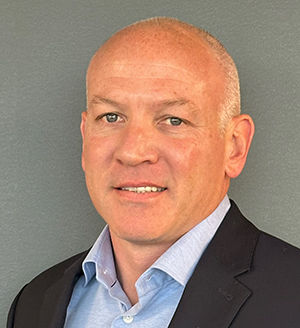Rehab Medical has new ‘eyes’ on payers

By Liz Beaulieu, Editor
Updated 10:07 AM CST, Fri January 10, 2025
 INDIANAPOLIS – Rehab Medical has sharpened its focus on regulatory and funding issues by adding Michael Farrell, formerly of UnitedHealthcare and Optum, to its executive team to “protect” the company’s growth in the complex rehab technology market.
INDIANAPOLIS – Rehab Medical has sharpened its focus on regulatory and funding issues by adding Michael Farrell, formerly of UnitedHealthcare and Optum, to its executive team to “protect” the company’s growth in the complex rehab technology market.
The company in December named Farrell, who has more than 15 years of experience in the broader health care industry, as vice president of regulatory and funding, a newly created position.
“Every provider type is trying to provide a service and get paid, and Rehab Medical is no different,” he said. “The company has experienced significant growth, and it wants to protect that. That’s a significant part of my role.”
Farrell’s experience also includes serving as vice president of accounts receivable for Zotec Partners, a Carmel, Ind.-based provider of revenue cycle, patient billing and practice management solutions.
Farrell and his team have “eyes” on all of Rehab Medical’s payers – the biggest being Medicare and Medicaid – to make sure the company stays up to date on all changes and operates and bills in line with regulations, he says.
“The nature of health care as a whole is complex and then you add on the dynamics of complex rehab and all of its components, which can be very unique – it can be challenging,” he said.
Another focus of theirs is analyzing Rehab Medical’s AR and determining where it’s falling short, whether it’s a coding, billing or documentation issue, Farrell says.
“Better knowing and understanding where our AR is and why it’s where it is will allow us to slowly attack that AR, resulting in increased payments,” he said. “We want to make sure we’re compensated for our service but also we’re compensated the right amount.”
Underlying their work, Farrell says, will be the understanding that payers also have a job to do.
“A provider’s initial response is often that they’re being attacked by payers,” he said. “It’s more about how we can work together to make us both more efficient. If we’re falling short, we want to know about it, so we can improve our processes and procedures.”
Comments